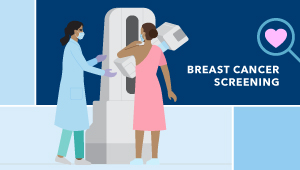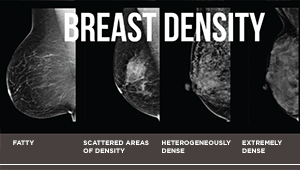Weiwei Zhu, MS
Biography
Weiwei Zhu, MS, joined Kaiser Permanente Washington Health Research Institute's Biostatistics Unit in 2009. She works closely with Affiliate Investigator Diana Miglioretti, PhD, to design studies, manage data, and conduct statistical analyses for the Breast Cancer Surveillance Consortium (BCSC) — the National Cancer Institute’s 7-site network of mammography researchers. She has been a key member of the BCSC Statistical Coordinating Center for over 10 years. Her work studying breast screening benefits and risks played an essential role in an American Cancer Society screening guideline change in 2015.
Weiwei’s current other studies include testing the effects of sitting reduction on cardiometabolic health outcomes through a large randomized trial in older adults, studying a sedentary behavior reduction and physical activity promotion intervention for the older Latino/Hispanic community, and examining the association of the 24-hour activity cycle with cognition and physical function in older adults with Senior Investigator Dori Rosenberg, PhD, MPH. Weiwei has also collaborated on research to quantify the serious risks of misuse, abuse, and addiction associated with long-term opioid use. This multi-site study used electronic health record data and survey interviews to provide estimates of long-term opioid use risks in 2 cohorts.
After beginning her medical research career as an intern at the University of Texas MD Anderson Cancer Center in 2007, Weiwei served as a biostatistician at the Moffitt Cancer Center and Research Institute in Florida.
Research interests and experience
-
Biostatistics
Correlated data analysis; longitudinal data; survival analysis
Medication Use & Patient Safety
Opioid misuse, abuse, and addiction
-
Cancer
Biostatistics; breast cancer screening and surveillance
Recent publications
Kerlikowske K, Zhu W, Tosteson AN, Sprague BL, Tice JA, Lehman C,Miglioretti DL. Identifying women with dense breasts at high risk of interval cancers. Ann Intern Med. 2015;162(10):I-10. doi:10.7326/P15-9018. PubMed
Hubbard RA, Benjamin-Johnson R, Onega T, Smith-Bindman R, Zhu W, Fenton JJ. Classification accuracy of claims-based methods for identifying providers failing to meet performance targets. Stat Med. 2015 Jan 15;34(1):93-105. doi: 10.1002/sim.6318. Epub 2014 Oct 10. PubMed
Fenton JJ, Zhu W, Balch S, Smith-Bindman R, Fishman P, Hubbard RA. Distinguishing screening from diagnostic mammograms using Medicare claims data. Med Care. 2014 Jul;52(7):e44-51. doi: 10.1097/MLR.0b013e318269e0f5. Epub 2012 Aug 23. PubMed
Hubbard RA, Zhu W, Balch S, Onega T, Fenton JJ. Identification of abnormal screening mammogram interpretation using Medicare claims data. Health Serv Res. 2015 Feb;50(1):290-304. doi: 10.1111/1475-6773.12194. Epub 2014 Jun 28. PubMed
O'Meara ES, Zhu W, Hubbard RA, Braithwaite D, Kerlikowske K, Dittus KL, Geller B, Wernli KJ, Miglioretti DL. Mammographic screening interval in relation to tumor characteristics and false-positive risk by race/ethnicity and age. Cancer. 2013 Nov 15;119(22):3959-67. doi: 10.1002/cncr.28310. Epub 2013 Aug 26. PubMed
Research

Roundup of 3 recent studies on breast cancer screening
New research spotlights overdiagnosis, MRI before surgery, and a new way of predicting breast cancer risk
Cancer screening

Breast density is a risk factor for older women, too
Findings in JAMA Network Open could help guide decision-making about breast cancer screening for women 75 and older.
Research

Phone therapy for insomnia shown to improve sleep
A study among KP members with sleep problems and osteoarthritis shows promise for overcoming obstacles to treatment.



